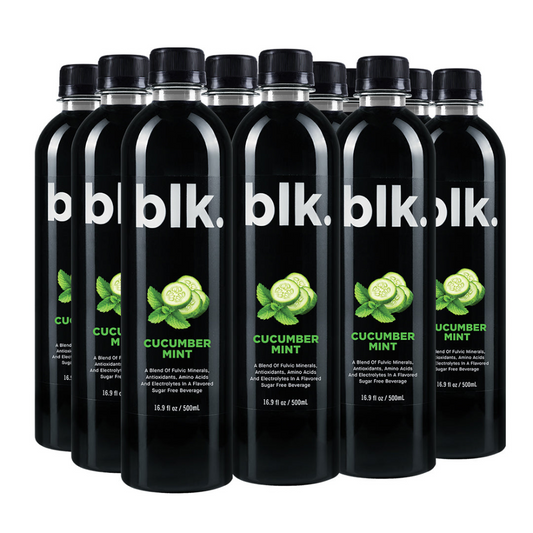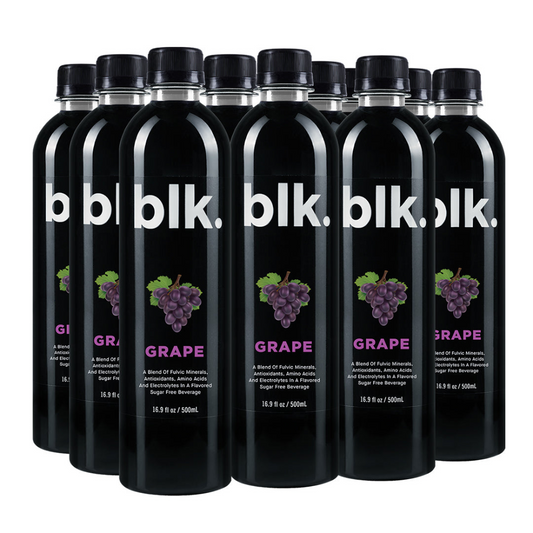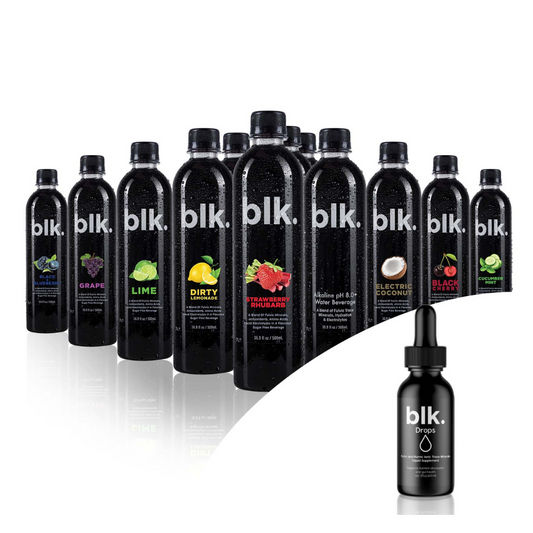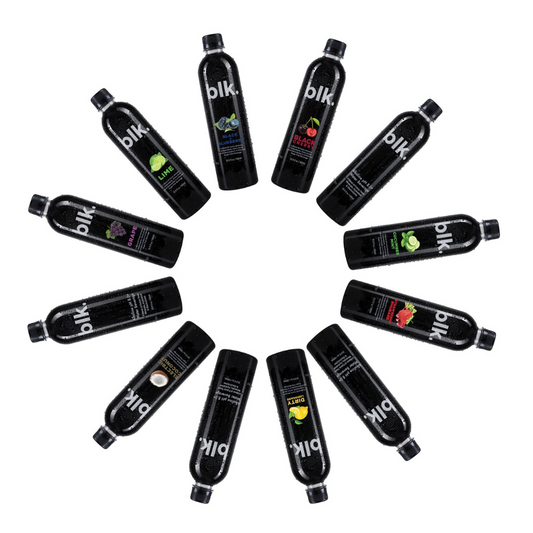
Boost Your Workouts with Protein Powder: Tips and Tricks
This Guide Seeks To Teach You:
- How protein aids you in workouts
- When and how to use protein powder in workouts
- The amount of protein powder you should take
- How to choose the best protein powder for workouts
- Mistakes to avoid when using protein powder
Have you added protein powder to boost your workout routine? The fitness industry is rapidly adopting protein powders for pre-workouts and post-workout muscle recovery to support bones, muscle, and tissue building. Protein powder could be your secret weapon to lift more weight or do more reps! Ripped shares some valuable tips and tricks for our readers on incorporating protein powder into their fitness routine.
From selecting the right type and flavor to optimizing your consumption timing and what you should avoid, you'll learn how to maximize this powerful supplement to unlock your full athletic potential. So, grab your shaker bottle, and let's start maximizing gains with protein powder!
Science of Protein In Your Body During Workout
Workouts make, your body demands more proteins than you would require when you are not exercising. Since your body has not yet gotten accustomed to exercises, these exercises cause structural damage to your muscle tissues.
The aforementioned structural damage necessitates a reaction from your body to help rebuild the muscle tissues and adapt to the exercises. You need to supply your body with proteins to sustain muscle rebuilding constantly. Ideally, athletes and other fitness enthusiasts need a higher protein intake than sedentary people. So, when you start exercising, you also have to review your daily diet to incorporate more proteins.
Protein plays a crucial role in post-workout muscle rebuilding and energy production to support bodily functions. When you take complete proteins, you consume the essential amino acids your body requires for muscle growth. Your body breaks down proteins into amino acids channeled into the muscle tissues to support growth.
Furthermore, how you time your protein intake may also impact the workout results. For instance, some athletes take proteins between 15 to 60 minutes before exercise/training and immediately post the workout sessions. There isn’t much research to substantiate whether that is the best time to consume proteins, but we know that you should spread the protein intake among your daily meals for the best results.
So, the simplest trick to ensure consistent protein intake in your body is buying protein powder supplements to meet your dietary needs (as long as you are not sensitive to any ingredients).
Tips on How To Advance Your Workout Level
Did you know that your bones, muscles, and skin are made of protein? Without protein, your body cannot perform certain functions such as muscle repair, digestion, etc. Protein powder is a supplement with proven nutritional benefits, especially for workouts.
The intended results, of course, depend on the type of protein powder you consume. You should also know that your daily protein intake also defines the trajectory of your workouts.
Before you purchase a protein powder supplement, you need to comprehend the effectiveness of protein powders in your body, along with the required protein for specific goals.
Tip 1: How to Improve Performance with Protein Powder
Generally, many athletes and people who frequently go to the gym have embraced protein shakes to help them build and repair muscles. According to a study, many fitness enthusiasts use protein powder supplements to aid strength training. The study suggests that when healthy adults with a consistent resistance training routine (weightlifting) use protein powder, it massively boosts their muscle mass and strength.
There is no restriction on who can use protein powder for muscle growth. Whether you are a man or a woman, supplements are equally effective as long as you consume a quantity befitting for your dietary needs. Research suggests consuming an average of 0.73 to 1 gram of protein per lb of body weight is the best dosage for muscle build-up.
Protein powder supports additional benefits that can help to improve performance:
1.1 Enhances Muscle Recovery After Exercise
Besides promoting muscle growth, protein powder also stimulates muscle recovery after workouts. Sometimes, after weight training, you may experience muscle soreness. But that is something protein powder can help you reduce. Scientific studies reveal that taking protein powder after exercise can help reduce muscle damage and stimulate muscle protein synthesis.
1.2 Reduced bloating
One thing you might need to learn is that protein works well with digestive enzymes. The enzymes that facilitate healthy digestion also support the breakdown of nutrients in protein. When you take protein you also avoid gastrointestinal problems like bloating. As much as protein generally aids digestion, you have to choose a highly digestible protein supplement. This is because you need something that can be quickly absorbed to stimulate muscle recovery after an intense workout.
Trick: Buy a protein powder rich in high-quality protein, such as whey protein, which can be easily absorbed from the gut during digestion.
1.3 Increased Nutrition
Athletes or bodybuilders require more proteins than average due to strength training. This is because, ordinarily, we need protein to maintain a balanced diet, whereas fitness enthusiasts need the essential amino acids in protein to strengthen muscle power, rapid recovery, and promote muscle gain.
Additionally, people on special diets, such as vegetarians and vegans, struggle with increasing protein intake due to their limited options. However, available plant-based protein powder like pea protein, soya protein gives them a convenient and effective option.
Important Note: The research notes that consuming anything beyond the recommended dosage may not have any additional benefits. Your body may respond differently to protein supplements.
Tip 2: How to Use Protein Powder in Workouts for Best Results
If you think using protein powders is just as simple as buying them, you are wrong. Regarding supplements, the dosage timing plays a significant role in their efficacy. Also, we just don't go and blend or mix protein supplements with whatever liquid we prefer to drink. You have to know how and when to use the protein shake as per your fitness & health goals, preferences, and schedule to consume the optimum supplement's effectiveness.
The type of protein powder you take is as crucial as the timing of the protein intake. For instance, someone looking to fast-track post-workout muscle recovery would choose whey protein over casein because of its absorption and digestibility benefits.
So, when is the best time to take protein powder to boost workouts?
2.1 Protein Before Workout for Extra Energy
Think of Pre-workout protein as fuel to your body to prepare it for strength training. When you take protein powder before a workout, you kickstart the muscle protein synthesis process, which will later be completed during the exercise. However, pre-workout protein may only be ideal for some. Some people may experience stomach discomfort when they consume protein powder before working out.
2.2 Protein Powder After Workout For Speedy Recovery
Experts have varying opinions on the best time to take protein powder for workouts depending on your body's BCA reports and goals. Surprisingly studies also suggest that the timing may not matter at all. Some studies claim that the body is at its prime for protein powder absorption after exercise. It also claims that the (anabolic) window only exists for about 30 minutes and that if you miss it, your workout becomes irrelevant. Moreover, taking protein powder after exercise stimulates muscle fibers' rebuilding, thus reducing muscle damage.
2.3 Protein supplements During Workout To Maintain Energy Level
One crucial benefit of an intra-workout supplement is that it maintains the glucose level in your muscles, thus minimizing fatigue. It could also reduce damage to the muscle fiber.
2.4 Protein Powder Recommended Dosage
The recommended protein powder dosage is 0.7 to 1 gram per lb of body weight. Putting in the hours at the gym doing different exercises and lifting weights to get desired results may all go in vain if you do not match it with the proper diet. By that, we mean having high-quality protein in recommended dosage promotes muscle building and growth after exercise.
Furthermore, factors like age, gender, body size, and physiological indicators like health conditions, fitness levels, or pregnancy also determine the amount of protein you can take.
Additionally, protein is not all about muscle growth alone. Consuming protein powder enhances satiety. Thus, you won’t have to eat cheat meals to fill your belly. On top of that, protein shakes can help you meet your daily protein intake targets.
Trick: The serving instructions on the pack are based on sampling a few individuals and may not apply to you. Whether or not you are participating in strength training, you need to figure out the proper daily intake that works for your body. You may need more or less depending on your fitness goals. You should consult an expert to get more accurate recommendations depending on your nutritional demands.
Tip 3: How To Choose The Best Protein Powder For Workouts
Several factors, including protein powder purity, ingredients, and even brand reputation, determine your choice of protein supplements. Additionally, the type of protein powder is also essential. For instance, whey protein has a higher protein composition than other protein powders. So, you need to know your dietary needs before settling on a particular protein powder. In essence, if you want to control weight, you will need a different protein powder compared to someone looking to bulk up.
Furthermore, vegetarians, vegans, and lactose-intolerant individuals wouldn’t go for dairy-related protein powders such as whey and casein. So, you should check the ingredients and eliminate the options presented based on your sensitivities.
Trick: Buy only authentic and approved protein supplements from Ripped.com. We add products to our online store only after researching each brand’s credibility, process of protein extraction, reviews and ratings, third-party purity test results, allergic reactions, and effects on other medications.
Tip 4: Avoid Common Mistakes When Using Protein Powder
There is a great responsibility associated with using protein powder supplements. You have to get everything right for the supplements to be effective. And in order to do so, there are some mistakes you should avoid. Some of the common mistakes that people make when using protein powder include the following:
- Skipping meals - Most people assume that protein shake is a meal replacement. However, it is an addition to your diet that works well if your muscles are fueled by energy from other foods.
- Ignoring your body’s reaction - You have to pay attention to your body. If it is not responding well to protein powder, discontinue usage.
- Not reading the product label - The ingredients and the recommended dosage are crucial factors determining a protein powder's effectiveness. Always remember to check what the product label says. Furthermore, try to avoid products with artificial sweeteners.
- Buying pre-made protein shakes with artificial sweeteners - Some manufacturers add extra ingredients that may contain unfavorable nutrients. For instance, ingredients with too many calories may hinder your muscle growth journey.
Conclusion
Protein is an essential building block for muscles. Using protein powder can be a worthwhile and convenient way of maximizing your protein intake. You should keep the timing, recommended dosage, and types of protein powder in mind when using the supplements. Also, don’t forget to avoid the common mistakes many people make when using protein powders.
Frequently Asked Questions
-
What are the different types of protein powder?
-
Can too much protein powder cause weight gain?
-
Is it necessary to drink water when taking protein powder?
-
Can protein powder be harmful to the kidneys?
-
Are there any side effects of taking protein powder?
-
What are the best protein powder brands for workouts?




